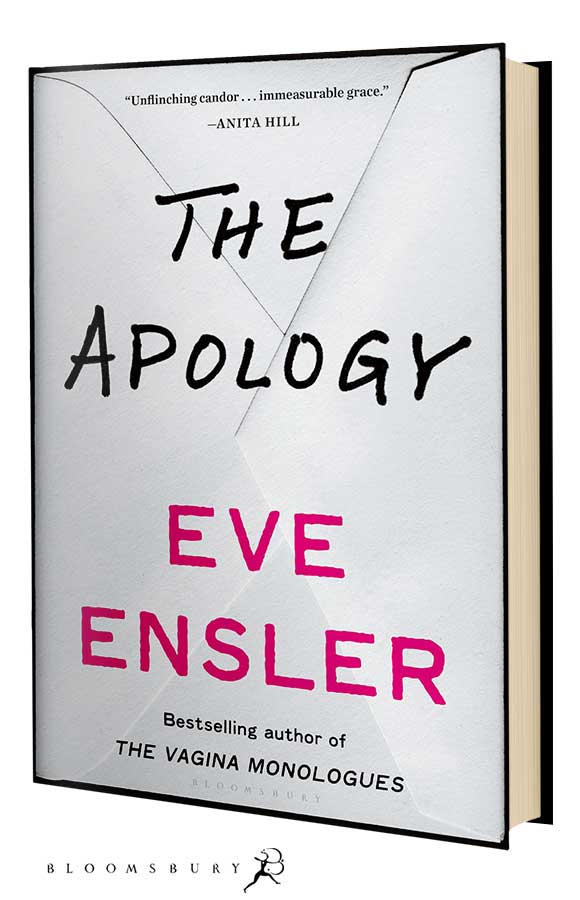Eve Ensler's TED Talk "The Profound Power of An Authentic Apology" Out Today
Just days after she delivered the talk, Eve Ensler's newest TED talk "The Profound Power of An Authentic Apology" has been released, one of the first videos coming out of TEDWomen 2019. Held in Palm Springs, the annual event was founded and is editorially directed by V-Day Board member and author of Dangerous Women Pat Mitchell.
"For a few years now, we've been calling men out. It had to be done. But lately, I've been thinking–we need to do something even harder. We need to find a way, as my good friend Tony Porter says, to call them in." – Eve Ensler
From TED: Genuine apology goes beyond remorse, says legendary playwright Eve Ensler. In this frank, wrenching talk, she shares how she transformed her own experience of abuse into wisdom on what wrongdoers can do and say to truly repent -- and offers a four-step roadmap to help begin the process. (This talk contains mature content.)
Eve's appearance at TED comes immediately following her tour of India and Taiwan where she made a series of appearances on behalf of The Apology and participated in One Billion Rising events and actions.
While in India, Eve also completed a roundtable with feminist reporters resulting in a wave of media coverage and deep dialogue within the country about the book and the issues it raises. “I honestly think if we're going to undo patriarchy men have to lead this, because they are the people who benefit from it.” says Eve in an interview with photographer Howard Schatz. She spoke with outlets including Vogue India, Hindustan Times, National Herald, and more about the transformational quality of a genuine apology and the necessity of men to do the work of rising up against this violence and taking responsibility for their role in perpetuating patriarchal violence.
Below are some inspiring takeaways:
“What's changing? That is a deep concern of mine. We will call out, but if men are not using this as a moment to say, ‘I've got to investigate how I have been created in a toxic masculine world; do I even know what rape and abuse really is', how will we change?” said Eve to Dhamini Ratnam of The Hindustan Times.
“The 31 years that my father has been dead, I have worked day in and day out to end violence against all women and girls. In that time, we have seen women break their silence, tell their stories, risk humiliation, attack and yet in all that time there has been no public apology. So, then I thought, why don't I write the words to myself, the words I long to hear,” said Ensler.
"I wrote The Apology because in all the years of working in this movement, in all the recent cases of #MeToo, perhaps in 16,000 years of patriarchy, I had never heard a man make a public, thorough, authentic apology for sexual or physical abuse towards girls, boys or women. My father says in The Apology 'to be an apologist is to be a traitor to men. Once one man admits he knows it was wrong, the whole story of patriarchy begins to collapse.' Now is the time for men to become gender traitors, and begin the apology process." said Eve, for The Times of India
The events ‐ led by One Billion Rising's Chi Hui-Jung, Kamla Bhasin, Abha Bahaiya, and Anthony Carlisle – were transformative and the dialogue to end violence against all women and girls is continuing throughout India.
The Toolkit - created by Farah Tanis, a transnational Black feminist, human rights activist and co-founder and Executive Director of Black Women's Blueprint, the toolkit is designed to help survivors and their allies grapple with the idea of reckoning and apology.
The Reading Guide – created by Bloomsbury Publishing
Social Media - Follow the conversation around the book, follow The Apology on Instagram
The Website - Building upon years of work with survivors, activists and anti-violence groups, V-Day launched theapologybook.net as an online space for readers, activists and survivors to process and explore the themes raised in the book, for perpetrators to begin their own processes of accountability and apology, and for survivors to write imagined apologies and offer themselves healing.







